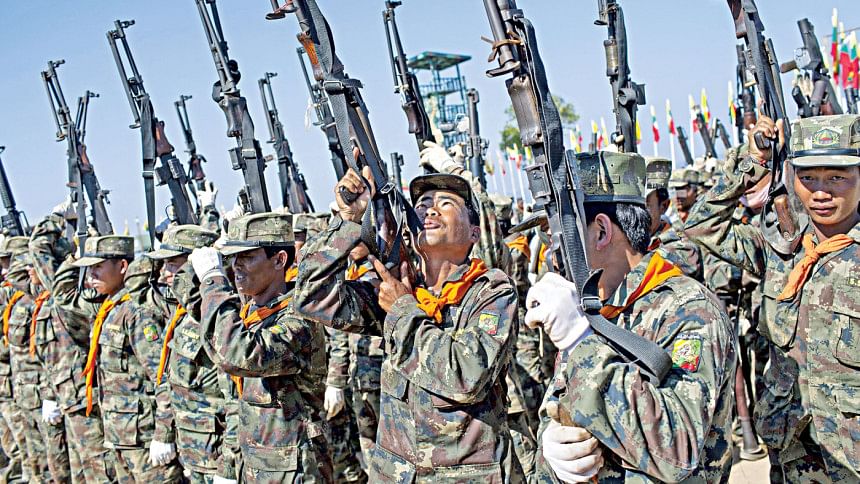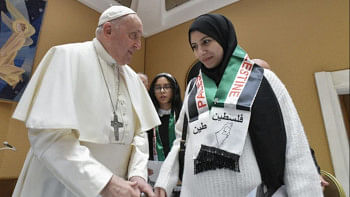Opponents form unity govt

Opponents of Myanmar's junta yesterday announced a National Unity Government including ousted members of parliament and leaders of anti-coup protests and ethnic minorities, saying their aim was to end military rule and restore democracy.
Myanmar has been in turmoil since the Feb. 1 coup that ousted a civilian government led by Aung San Suu Kyi which had held power for five years and was starting its second term after a landslide election victory in November.
People have taken to the streets day after day to demand the restoration of democracy, defying crackdowns by the security forces in which more than 700 people have been killed, according to a monitoring group.
At the same time, political leaders, including ousted members of parliament from Suu Kyi's party, have been trying to organise to show the country and the outside world that they and not the generals are the legitimate political authority.
"Please welcome the people's government," veteran democracy activist Min Ko Naing urged world powers in a 10-minute video address announcing the formation of the National Unity Government (NUG).
Meanwhile, European diplomats yesterday said that the European Union was set to impose more sanctions next week, targeting 10 individuals and two businesses controlled by the military.
The measures -- expected to be unveiled following a virtual meeting of EU foreign ministers on Monday -- come after the bloc hit junta chief Min Aung Hlaing and 10 other senior officials with sanctions last month.
Diplomats said the fresh round of EU asset freezes and visas bans will be expanded to two firms tied to the military.
The unity government released a list of office holders including members of ethnic minorities and protest leaders, underlining the unity of purpose between the pro-democracy movement and autonomy-seeking minority communities, some of whom have battled the central government for decades.
Suu Kyi, who has been in detention since the coup, was listed as state counsellor, the post she held in government.
NUG's minister of international cooperation, Dr Sasa, told Reuters the objective was to end violence, restore democracy and build a "federal democratic union". Unity government leaders said they intended to form a federal army and were in talks with ethnic minority forces.
There were no immediate reports of violence at protests on Friday but six people were killed in a shootout between soldiers and a "local group" in the central town of Kani the previous day, the Myanmar Now media agency reported.
Leaders of the 10-member Association of Southeast Asian Nations (Asean), which includes Myanmar, will meet in Indonesia on April 24 to discuss the situation, Thai and Indonesian media reported.
Junta leader Senior General Min Aung Hlaing was due to attend, a Thai broadcaster said, but the Jakarta Post said it had not been confirmed whether the summit would include representatives of the junta or the former government.

 For all latest news, follow The Daily Star's Google News channel.
For all latest news, follow The Daily Star's Google News channel. 



Comments